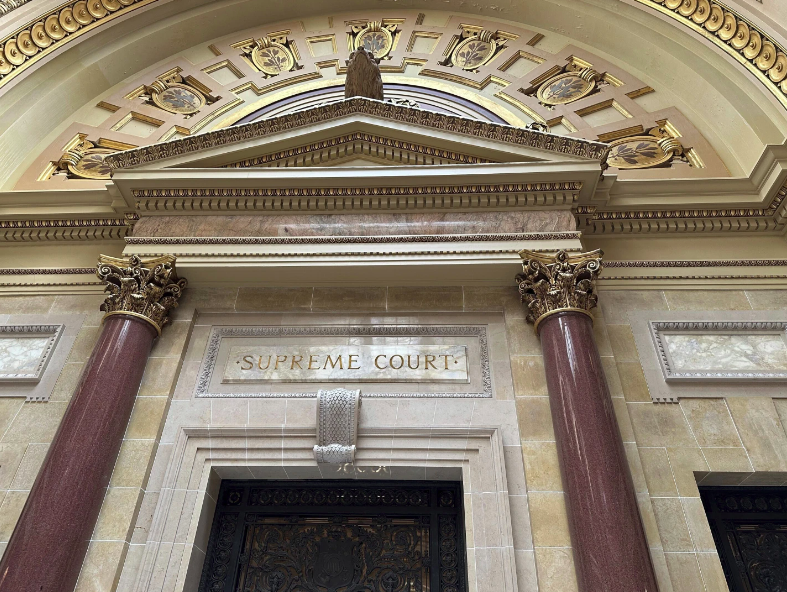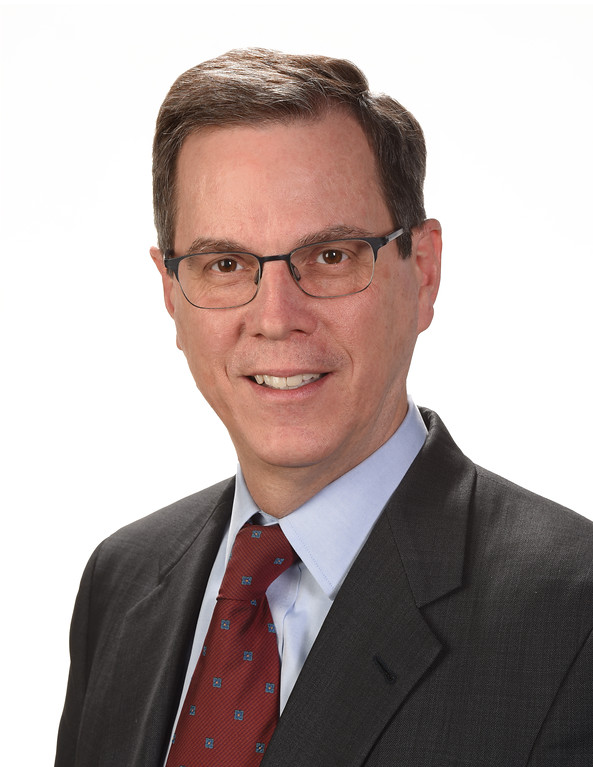Contributors to this series are asked to consider both the historical significance of recent developments in Ukraine, but also the practical implications for religious communities of the latest developments. What is the role religious communities can play in seeking to bring an end to the conflict and secure fundamental rights and freedoms, including religious freedom within a healthy denominationalism? What steps should policy makers take to promote peace and advance fundamental rights and freedoms for all in Ukraine.
This series builds on a joint RFI-USIP event hosted on October 31, 2018.
To read all posts in this series visit: Considering the Religious Dimensions of the Conflict in Ukraine
Russia failed to anticipate that its invasion of Ukraine in 2014 would cost it one of its most powerful levers of influence over its neighbor: the formal authority of the Russian Orthodox Church over its Ukrainian counterpart. But it has done so, and that unintended consequence could lead to others: a decline in Russian influence within the Eastern Orthodox world, a deeper division in the Orthodox community—even perhaps its greatest historical schism. The international community has a key role in determining how this unfolds and must act to ensure the worst scenarios don’t come to pass.
By using the Russian Orthodox Church as an instrument of state power in its conflict with Ukraine, the Kremlin galvanized a Ukrainian campaign for independence, or “autocephaly,” for the Ukrainian Orthodox Church. It also provided justification for the titular head of global orthodoxy, the ecumenical patriarch of Constantinople, to approve that request.
The Moscow Patriarchate responded by severing ties with Ecumenical Patriarch Bartholomew I. Supported by the Kremlin, the Russian church is pressing other Orthodox churches to help it overturn his grant of autocephaly to Ukrainians and threatened to sever ties with the Jerusalem Patriarchate over its support for Bartholomew’s authority. No other independent church has yet severed ties with Constantinople. Poland and Alexandria have spoken out against autocephaly for Ukraine from the Moscow Patriarchate, others support Bartholomew’s authority, and still others have tried to stay neutral, fearing a split in the Eastern Orthodox Church.
Because Constantinople is the ancient seat of the Eastern Orthodox faith, the more than 200 million Orthodox Christians traditionally regard its patriarch as the “first among equals,” and thus the formal leader among the 14 major Orthodox churches. But since the 15th century, the Russian church, as the largest and wealthiest single congregation, has pressed a rival claim to leadership.
The new conflict between the patriarchates of Moscow and Constantinople could yield many possible outcomes. The Eastern Orthodox Church could continue as a collection of independent congregations (including Ukraine) in which the debate over leadership remains unresolved. Or an aggressive push by Moscow could force churches to choose sides, effectively rending the Orthodox community. Meanwhile, other churches subject to the Moscow Patriarchate’s authority—in Belarus, for example—could seek autocephaly. The schism could escalate religious tensions elsewhere, notably among Orthodox congregations and countries in the Balkans as Montenegro and Macedonia seek autocephaly from Serbia. In countries already subject to Russian aggression—such as Georgia and Moldova—church leadership, the government and the people could be divided. While violent conflict is not a certainty, the heightened passions of a religious schism could add a dangerous element.
The Challenge for Russia
For Russia, an autocephalous Ukrainian Orthodox Church poses a strategic challenge. The Moscow Patriarchate stands to lose up to one-third of its parishes, some of the most active in the Russian Orthodox Church. It also would lose its claim to sole inheritance of the baptism of Kievan Rus in 988. (The adoption of Orthodox Christianity by the ancient principality of Rus, in what is now Ukraine, is the historic event that Russians embrace as the origin of the Russian state and identity.) That loss would diminish the Moscow Patriarchate’s claim to leadership of Eastern Orthodox Christianity. Autocephaly for the Ukrainian Orthodox Church also undermines President Vladimir Putin’s use of the Russian Orthodox Church to legitimize his regime within Russia and to influence other Eastern Orthodox countries.
It is therefore not surprising that Russia and the Moscow Patriarchate have reacted to autocephaly with threatening statements. Echoing words used in advance of Russia’s invasion of Ukraine, the Kremlin spokesman, Dmitry Peskov, said that “Russia … as it defends the interests of Russians and Russian-speakers, as Putin has always said, in the same way … defends the interests of the Orthodox Christians.”
The Kremlin and the Moscow Patriarchate have mounted a diplomatic and disinformation campaign to press the Orthodox patriarchs to question Ecumenical Patriarch Bartholomew’s decision and his authority. More aggressive actions are likely to follow. Even if Russia cannot annul Bartholomew’s decision, it will seek to undermine its implementation by swaying opinion, sowing dissension, and instigating conflict. The Associated Press recently documented the invasion of the Ecumenical Patriarchate’s computers by Russian hackers. Meanwhile, an iconic Kyiv church, St. Andrew’s, was attacked with a Molotov cocktail after the government transferred it to the Ecumenical Patriarchate. And Ukrainian authorities are investigating priests for allegedly inciting hatred and violence.
Ukraine’s Response Is Critical
Ukraine’s careful management of the autocephaly transition will be essential to counter Russia’s campaign. At the same time, Ukrainian patriotism, regardless of faith, stirred by autocephaly provides an opportunity and a responsibility to strengthen Ukraine’s commitment to a multifaith, pluralist society and to democracy and good governance.
Following the Ecumenical Patriarchate’s ruling, Ukraine will need to forge a single Ukrainian Orthodox Church from among the three existing groups (including the one governed by the Moscow Patriarchate). Yet the government must avoid establishing a Ukrainian state church and must allow those parishes that choose to continue following the Moscow Patriarchate to do so. Authority over many church properties will need to be transferred and will become the objects of conflicts. So that process must be handled with transparency and adherence to the law.
Multifaith institutions, such as the All-Ukrainian Council of Churches and Religious Organizations, which includes Jewish and Islamic representatives along with Christian denominations, will play an essential role in building cohesion. As trusted faith leaders, the council’s members have a vital role in countering rumors and untruths and speaking out for a multifaith society. By adhering to this path, Ukraine can blunt Russia’s campaign, build international support for autocephaly, and possibly provide a model for the Eastern Orthodox Church’s role in a pluralist society.
Other powers will play an important role in determining how autocephaly rolls out in Ukraine and its impact on the Eastern Orthodox Church. Western powers have stated their support for religious freedom and for Ukrainian autocephaly. Perhaps more important will be their response to armed Russian aggression, including Russia’s recent attack on three Ukrainian vessels attempting to navigate the Kerch Strait. A weak response will embolden Russia and weaken the resolve of states and churches under pressure to align themselves with the Russian Orthodox Church.
The Holy See or other religious entities could play a quiet diplomatic role, providing good offices, mediation and dialogue, to support the autocephaly transition in Ukraine and facilitate discussion across Orthodox churches. Turkey, although an Islamic country, could play a decisive role. Turkey could have stopped the ecumenical patriarch, who resides in Istanbul, from i
ssuing his decision on autocephaly. By standing back, Turkey effectively dealt a blow to Russia, its powerful neighbor and sometimes ally.
The Kremlin’s aggression against Ukraine has already backfired once, leading to autocephaly for Ukraine and a blow to the Russian Orthodox Church’s stature. The current campaign to reverse that decision and to replace the ecumenical patriarch—in addition to new aggressive actions in the Azov Sea–could again have unintended results, including an historic schism in the Orthodox Church and new conflict across Eastern Europe. We don’t know how this will play out, but Russia must heed, and the international community must anticipate, the risk of unintended consequences from Russia’s actions.
This post is also published here by the United States Institute of Peace.
Charles North is is a senior advisor for the U.S. Institute of Peace focusing on Ukraine and Russia. North, a senior foreign service officer with the rank of career minister, joined USIP on detail from the U.S. Agency for International Development in October 2017. Previously, North was the acting assistant administrator, 2014-2017, and senior deputy assistant administrator, 2013-2014, in USAID’s Bureau for Economic Growth, Education, and Environment. North served as mission director in Russia, overseeing a $60 million program from 2010 to 2013. North is a graduate of Wesleyan University and holds master’s degrees in management from Yale University and in national security strategy from the National War College.
All views and opinions presented in this essay are solely those of the author and publication on Cornerstone does not represent an endorsement or agreement from the Religious Freedom Institute or its leadership.
THE RFI BLOG

How Soccer Reveals Different Meanings Of ‘Secular’ In France And The US

RFI’s Ismail Royer Meets with Delegation from India

Protecting the Unborn, Mothers, and Medical Ethics: The Stakes of Arkansas’ Amendment

Wisconsin Supreme Court Punishes Catholic Charities for Serving Everyone

Wisconsin Supreme Court Decision Truncates Religion
CORNERSTONE FORUM

Public Bioethics & the Failure of Expressive Individualism

Religious Liberty in American Higher Education

Scotland’s Kate Forbes and the March of Secularism

70 Years of Religious Freedom in Sweden: Prospects and Challenges


